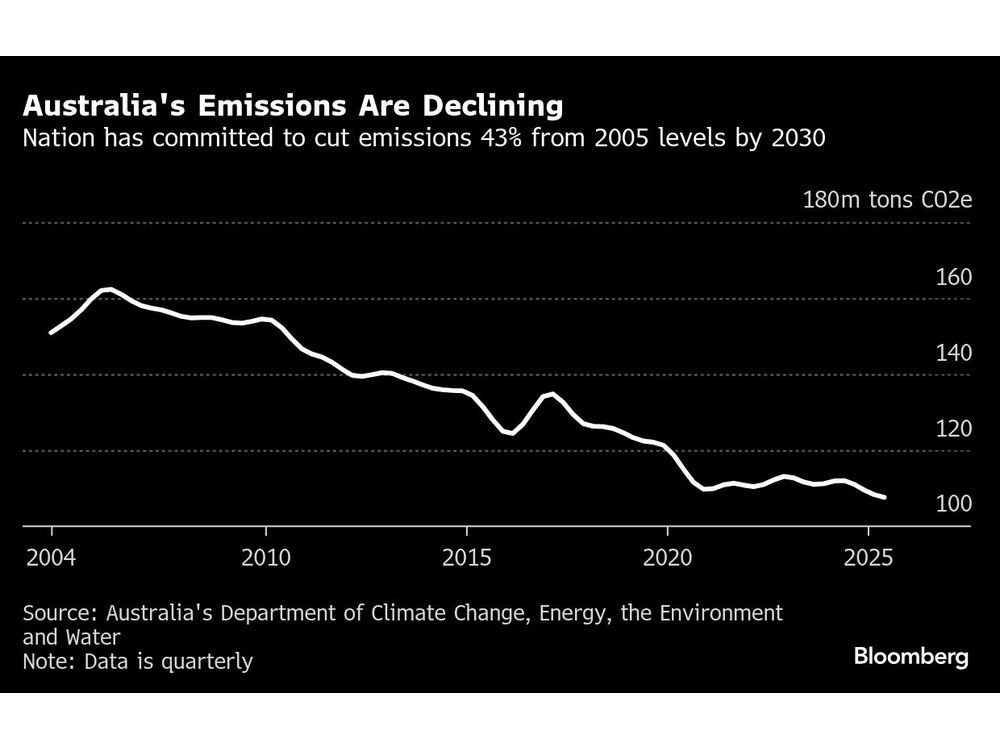Top Stories
Australia Commits $6 Billion to Combat Climate Hazards by 2030

BREAKING: Australia has just announced a monumental commitment of A$9 billion ($6 billion) to bolster climate adaptation efforts through 2030. This urgent funding comes as the nation braces for increasingly severe climate hazards linked to global warming, as revealed in two critical reports released today.
The investment is aimed at addressing pressing issues such as flood mitigation, bushland conservation, and supporting the agriculture sector’s transition to net zero emissions. Climate Change and Energy Minister Chris Bowen emphasized that “no Australian community will be immune” from catastrophic events like heat waves, floods, and bushfires as these threats escalate.
The reports indicate that Australia is at risk of losing an alarming A$40 billion annually due to climate change impacts. As the country prepares to unveil its 2035 emissions targets, environmental advocates are urging the government to adopt significantly more ambitious goals to combat the escalating crisis.
Bowen highlighted the importance of proactive measures, stating, “Every degree of warming we prevent now will help future generations avoid the worst impacts in years to come.” This statement underscores the urgent need for action as Australia, one of the world’s largest per capita emitters, faces pressure to reduce emissions by 71% by 2035 to meet its net zero target by mid-century.
The consequences of inaction are stark. Recent torrential rains resulted in catastrophic flooding on Australia’s east coast, claiming five lives and devastating livestock and infrastructure. By 2050, over 1.5 million Australians could be at risk from rising sea levels and coastal flooding, with the potential for heat-related fatalities in Sydney to surge by more than 400% if temperatures rise above 3°C.
Additional forecasts warn of property value losses totaling A$611 billion due to migration away from high-risk areas, disproportionately affecting disadvantaged households, including Aboriginal and Torres Strait Islander communities. The reports also highlighted looming threats to food and water security as drought conditions threaten crop yields and marine ecosystems face accelerated coral bleaching.
Martina Linnenluecke, director of the Centre for Climate Risk and Resilience at the University of Technology Sydney, stated, “The findings highlight that adaptation to these risks is no longer optional but an urgent requirement.” The cascading effects of climate risks across multiple sectors are amplifying the need for immediate action.
As Australia moves forward with these initiatives, all eyes will be on the upcoming emissions target announcement and the nation’s role in hosting the United Nations’ flagship climate conference next year. The urgency of these developments cannot be overstated; the time for action is now.
-

 World4 months ago
World4 months agoScientists Unearth Ancient Antarctic Ice to Unlock Climate Secrets
-

 Entertainment4 months ago
Entertainment4 months agoTrump and McCormick to Announce $70 Billion Energy Investments
-

 Lifestyle4 months ago
Lifestyle4 months agoTransLink Launches Food Truck Program to Boost Revenue in Vancouver
-

 Science4 months ago
Science4 months agoFour Astronauts Return to Earth After International Space Station Mission
-

 Technology2 months ago
Technology2 months agoApple Notes Enhances Functionality with Markdown Support in macOS 26
-

 Top Stories3 weeks ago
Top Stories3 weeks agoUrgent Update: Fatal Crash on Highway 99 Claims Life of Pitt Meadows Man
-

 Sports4 months ago
Sports4 months agoSearch Underway for Missing Hunter Amid Hokkaido Bear Emergency
-

 Politics3 months ago
Politics3 months agoUkrainian Tennis Star Elina Svitolina Faces Death Threats Online
-

 Technology4 months ago
Technology4 months agoFrosthaven Launches Early Access on July 31, 2025
-

 Politics4 months ago
Politics4 months agoCarney Engages First Nations Leaders at Development Law Summit
-

 Entertainment4 months ago
Entertainment4 months agoCalgary Theatre Troupe Revives Magic at Winnipeg Fringe Festival
-

 Top Stories1 week ago
Top Stories1 week agoFamily Remembers Beverley Rowbotham 25 Years After Murder





















